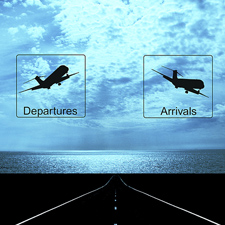
 |
Job CategoriesArticles |
Red Eye
By Shani Reid
Jobs in the aviation industry go beyond the cabin crew, a look at the technical jobs in this sector. Aircraft Mechanic 
If as a child you fantasized about working on very large equipment, then maybe a career as an aircraft mechanic is for you, everyday duties include but are not limited to
Air Jamaica Holdings Limited is the only company in Jamaica that offers a four year Apprenticeship programme. At the completion of this course the Jamaica Civil Aviation Authority awards a certificate. There are schools overseas that offer similar courses. Potential employers are far ranging as demand for qualified and skillfully trained Aircraft Mechanics are always in demand due to the highly technical field in which they work. An aircraft mechanic should most definitely have an eye for detail and realize that their line of work cannot be subject to human error as many lives are in their hands. Jerome Davis, an aircraft mechanic who participated in the apprenticeship programme offered by Air Jamaica says, “there are tremendous opportunities for growth, given the nature of the job, there are always new procedures and methods to learn, this is something I have always wanted to do ever since I was a child.� Starting salaries for Aircraft Mechanics are J$80,000 monthly gross. Air Traffic Controller While the title may seem almost self explanatory there is much more to an air traffic controller than simply directing traffic, and is a bit more complicated than when a police officer directs rush hour traffic, an air traffic controller authorizes, regulates and controls commercial airline flights according to government and company regulations in order to expedite and guarantee flight safety. Their job is to control air traffic on and within the vicinity of the airport and movement of air traffic between altitude sectors and control centers according to established procedures and policies. Duties of an air traffic controller include:
Air Traffic controllers hold the lives of many within their hands as they are an eye in the sky for the rest of us and so are required to have strong knowledge of physics, mathematics, computers and electronics. They should exercise critical thinking and have efficient and accurate judgment and decision-making abilities. In Jamaica, the Civil Aviation Authority of Jamaica is responsible for the employment of air traffic controllers at the island’s airports. Aeronautical Engineer An aeronautical engineer applies scientific and technological principles to research, design, maintain, test and develop the performance of civil and military aircraft, missiles, weapons systems, satellites and space vehicles. Offering a wide range of roles most engineers specialize in particular areas, these can include but aren’t limited to research, design, testing, maintenance and manufacture, the constant expansion in air travel means that many roles are available. Duties and responsibilities comprise:
The life of an aeronautical engineer involves working with teams, suppliers, clients and managers to develop and consent on budgets, project management, timescales and specifications, communicating and presenting data to groups, individuals and clients on technical and regulatory advice within the aerospace industry. O’Neil, an aeronautical engineer, who studied from the Emory Riddle University in Atlanta, says aeronautical engineer should be mathematically inclined and should take into account which area they would like to specialize in as it relates to that particular market. “In terms of design, it makes no sense to work in Jamaica’ as there are no opportunities with relation to that,� says O’Neil. So if plane sets were your thing as a kid then maybe you should check this out. In the United Kingdom many schools require that their applicants have bachelor’s degrees, however in the United States schools such as Emory Riddle use Scholastic Aptitude Tests (SAT) scores as part of their matriculation requirements. Salaries are dependent on the field you specialize in but higher salaries are paid to those with Masters or Research degrees. Prospective candidates will need to exhibit the following traits and qualifications, strong technical knowledge and lateral thinking, attention to detail (as this line of work cannot be susceptible to human error) ability to work to deadlines problem solving and analytical skills and most importantly says O’Neil ‘a genuine love of aviation aircraft and flight technology’. Generally speaking from all the information available and the airport personnel interviewed the field of aviation is exciting, ever changing and one that requires hard work, giving one hundred percent of yourself to the cause and definite attention to detail where critical thinking, quick decision making skills and active listening are the essential non academic tools needed to assure success, so if this is definitely your field then spread those wings and achieve your goals. Send your feedback to jobsmart@gleanerjm.com |
|
© Copyright Jamaica Gleaner
|